30+ Fascinating Historical Facts About Spartan Culture
In the movie 300, the lives of Spartans are glamorized by gorgeous actors and actresses with perfect bodies. The soldiers and their wives revel in nobility and violence, ready to take down any enemy threatening their way of life. In reality, the culture of Sparta shares little with the picture painted by Hollywood. The journey we’re about to take you won’t remove the armor, but it may reveal the rust on the swords. Life as a Spartan was not easy. If you were not considered perfect, the consequences could be deadly.
This is the real truth behind the mystery of Sparta and militaristic culture. Read on to find out more!
Children Began Training For War At Seven-Years-Old

Being a soldier was just about the only profession a male could have in ancient Spartan culture. Young boys were taken away from their families at seven-years-old to begin training for war! The intense training was designed to turn boys into men as soon as possible and help power the Spartan army.
The reputation of the Spartan army is proof of the success of their training as it is widely know today. Spartan soldiers have been written about in history books and put under the bright lights of Hollywood for years.
You Had To Fight, Even If You Had A Disease

The Spartan culture didn’t believe in taking sick days from work. If you couldn’t do your job, aka go to war, then you were branded a coward. The most famous case of his is Aristodemus. He missed the warriors’ famous last stand in Thermopylae because of an eye disease.
After the fight he was labeled a coward, even though he would have likely been useless in battle. To prove he wasn’t a coward, Aristodemus fought in the Battle of Plataea one year later. He died a horrific death. But hey, at least he died with his honor restored.
Spartans Did Not, We Repeat DID NOT, Fight Bare Chested
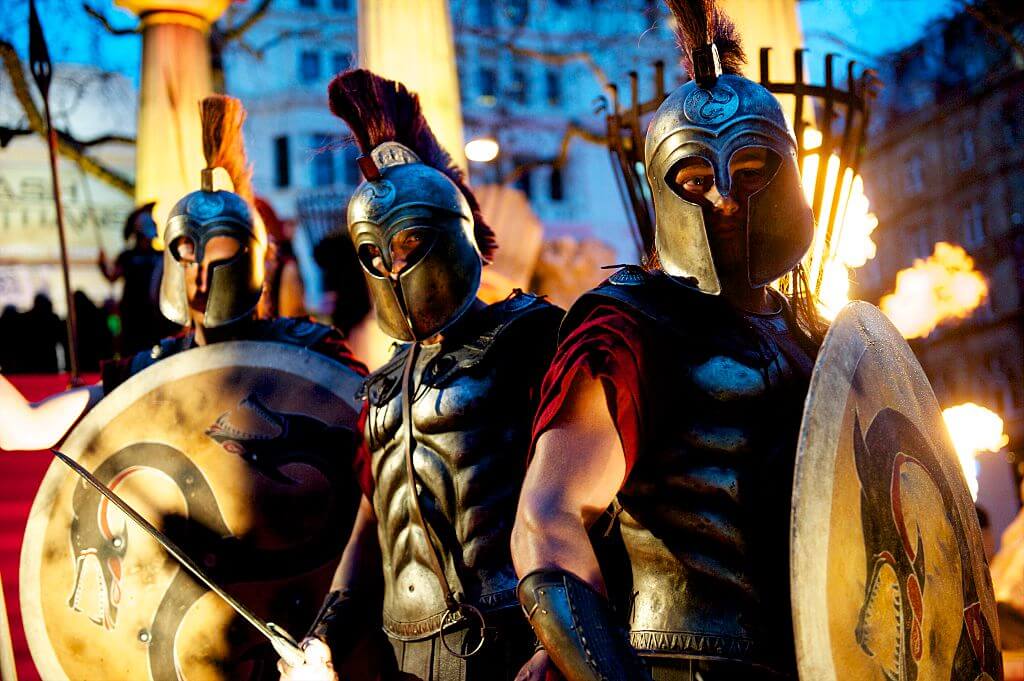
Sure, it looks good in movies like 300 to have the super fit spartan wars fight bare chested, but they would never win a real war that way. In reality, Spartans wore full body armor because they cared about being able to get back up after they’re knocked down.
The body armor was made of the same material and hoplite equipment that Greek soldiers used. The main difference between the two cultures was the colors of their tunics. The Spartans wore crimson to help strike fear into the hearts of their enemies.
Spartan Spears Had A Secondary “Butt-Spike” In Case Of Emergency

The Spartan weapon of choice was a simple spear. On the attack end, there was a razor sharp tip, ready to take out anyone in the soldiers path. On the other end was what’s known as a “butt-spike.” The smaller emergency tip had several purposes.
First, it could be used as a secondary weapon in case their spear broke. Second, it allowed the soldier to stand up the spear when the battle was over. Thirdly, and most dastardly of of, the “butt-spike” could be used to stab enemies who were laid on the ground. Perhaps that is why it was also called the “lizard-killer.”
Spartans Didn’t Believe In Surrendering

If you know anything about ancient warrior cultures, than this next fact probably isn’t surprising. Just like in Samurai culture, Spartans were expected to kill themselves before surrendering. To give up on the battlefield would make a Spartan a coward, and you already know how they feel about cowards.
To die in honor meant going to extremes when the battle was lost. Of course, there was that one time the Spartan army was forced to surrender before they could commit mass suicide. That’s a lot of cowards left breathing!
That One Time The Spartans Surrendered Comes With A Twist
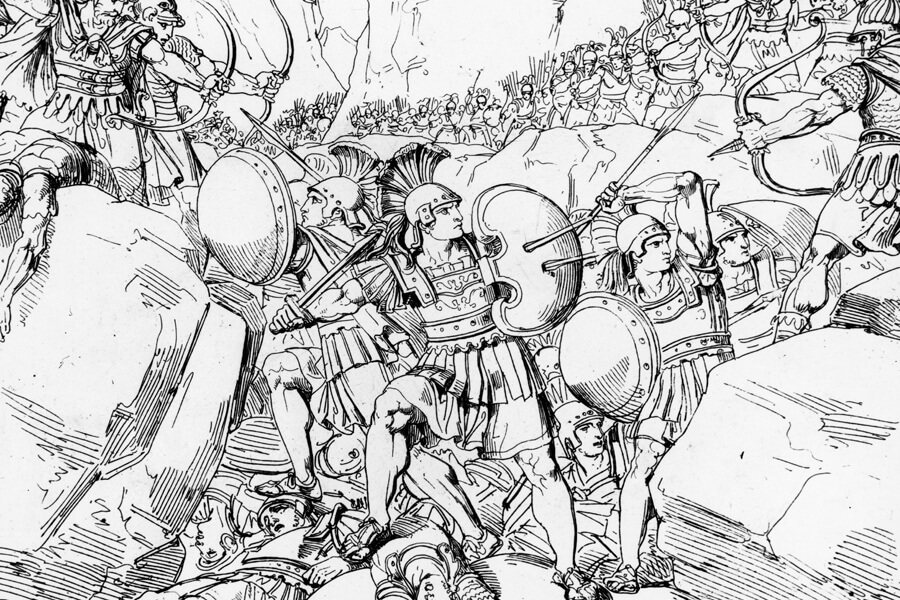
While it was considered honorable to kill yourself instead of surrendering, there was one time the Spartan army was forced to surrender. The Battle of Pylos was a epic failure of a fight for the Spartans. The worst part was that several soldiers were taken hostage by the Athenians.
The result of having Spartan hostages shocked the Greek world. At the time, no army believed the Spartans would ever surrender. It was well known back then that they preferred to die with honor.
Women Were Viewed As Baby Making Machines
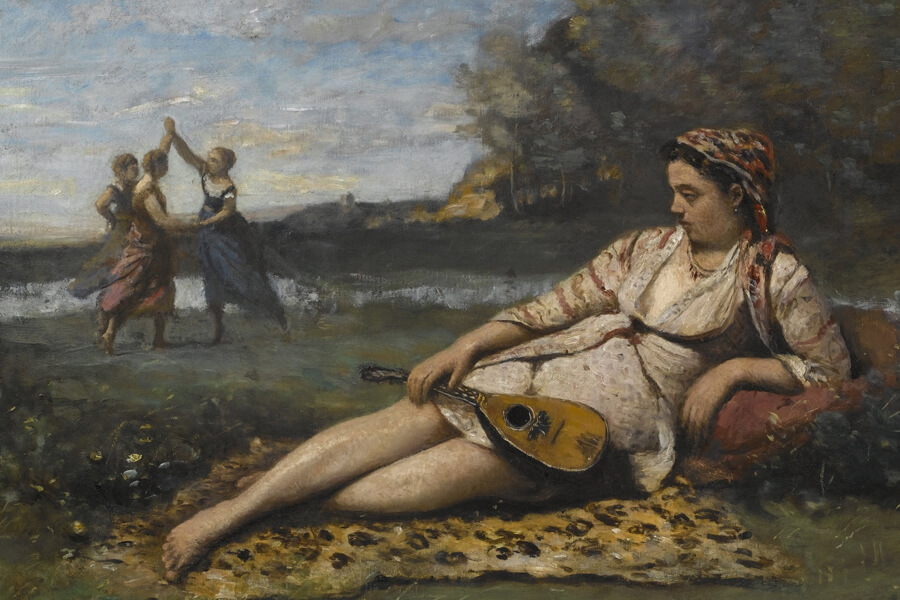
Spartans loved going to war. Because of this barbaric passion, they lost lives at incredible rates. To balance out the loss of life, they essentially forced women to be “baby making machines.” While not a nice way to say, it is the most accurate way we could think of.
When a Spartan female had no child, the government would force her to find a new man who could “do the job” her husband couldn’t. They were given no choice in the matter because the government was constantly trying to ensure that new males were being born.
They Didn’t Take Kindly To Threats

In maybe the most epic non-battle of all-time, the Spartans once responded to a threat by Philip II of Macedon with one of their own. Philip II, who had conquered most of Greece, wrote, "you are advised to submit without further delay, for if I bring my army to your land, I will destroy your farms, slay your people, and raze your city."
Instead of shaking in their tunics, the Spartan sent a one word message back to Philip II. It read, "If." Phillip II of Macedon took the response seriously and did not attack Sparta.
Spartans Had Their Own Work Force Of Slaves
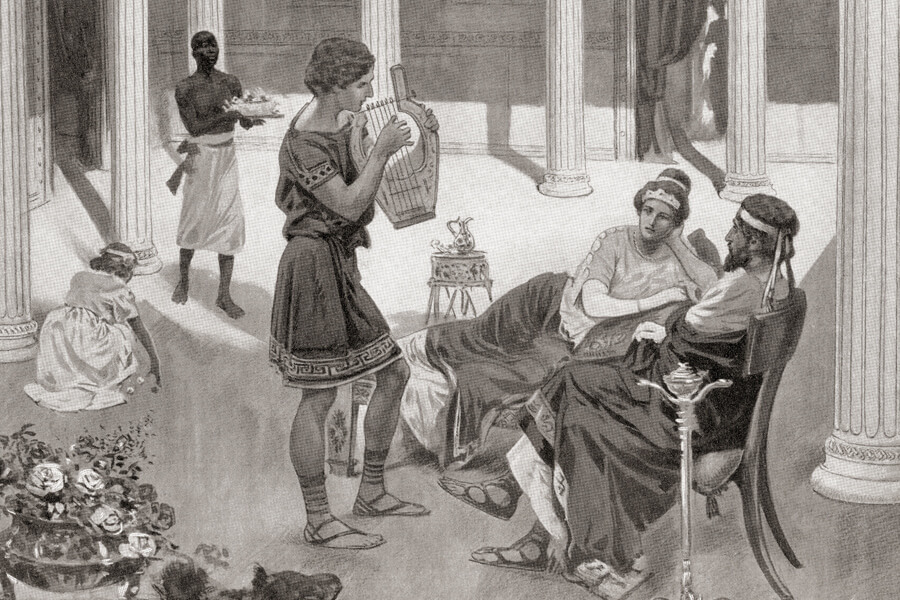
Because they were entirely focused on fighting wars and conquering other cultures, Spartans didn’t have time for other jobs. Still, they needed someone to do their farming, cooking, and any other duty they refused to do. To make sure it all got done, they had their own slaves that were called "helots."
Helots consisted of those Greek citizens who had been conquered by the Spartans. As the culture conquered more and more lands, their helot numbers grew and grew. Don’t worry though, the Spartans had their way to avoid a helot uprising.
The Spartans Had Secret Helot Police
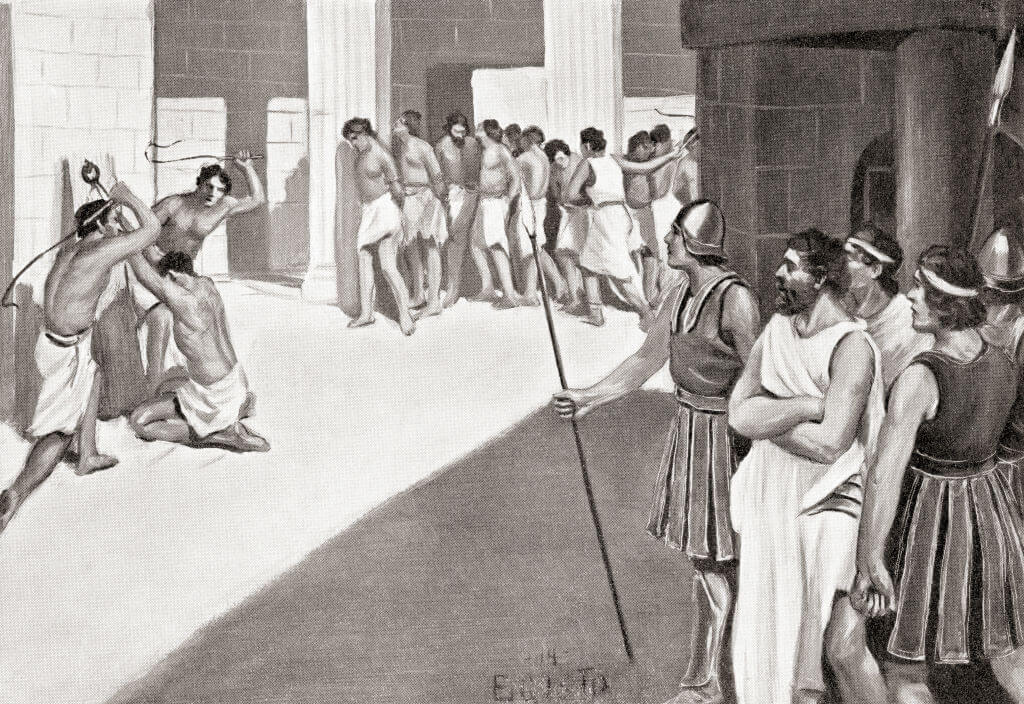
With such a large population of helots to keep in order, the Spartans knew they couldn’t leave them alone without enforcement. To maintain order among their slaves, Spartans had secret helot police named Krypteia. Their only job was to keep helots in check, no matter the consequences.
If the Krypteia found any helots wandering the countryside at night, they would kill them. If the Krypteia deemed any helot to be too fit, they would kill them. Basically, helots were only safe if they hated exercise and loved sleep.
Spartans Followed The Rule Of Two Kings

The citizens of Sparta were ruled by two kings from two different ruling dynasties. According to Spartan legend, the god Heracles fathered twin sons. Because they were twins, they both had equal right to the throne. The brothers formed the two royal houses; Agiad and Eurypontid.
As king, the brothers were also the chief priests of Sparta. Neither of these brothers was the most famous Spartan king, though. Thanks to 300, Leonidas is the most well know Spartan king today. He led the armies to war in the Battle of Theromoplyae.
Spartans Had Their Own Senate, House, And Supreme Court

To help maintain balance in society as well as the roles of the kings, Spartan society had ephors. Ephors were elected by the males citizens of Sparta, and essentially acted as the equivalent of America’s House, Senate, and Supreme Court.
As far as other Greek cultures during the time period, no one had a bigger government more capable of the checks and balances we are used to seeing today. The biggest difference, obviously, was the complete lack of women allowed to participate in politics and decision making.
Women Didn’t Have Power, But They Were Still Trained To Fight
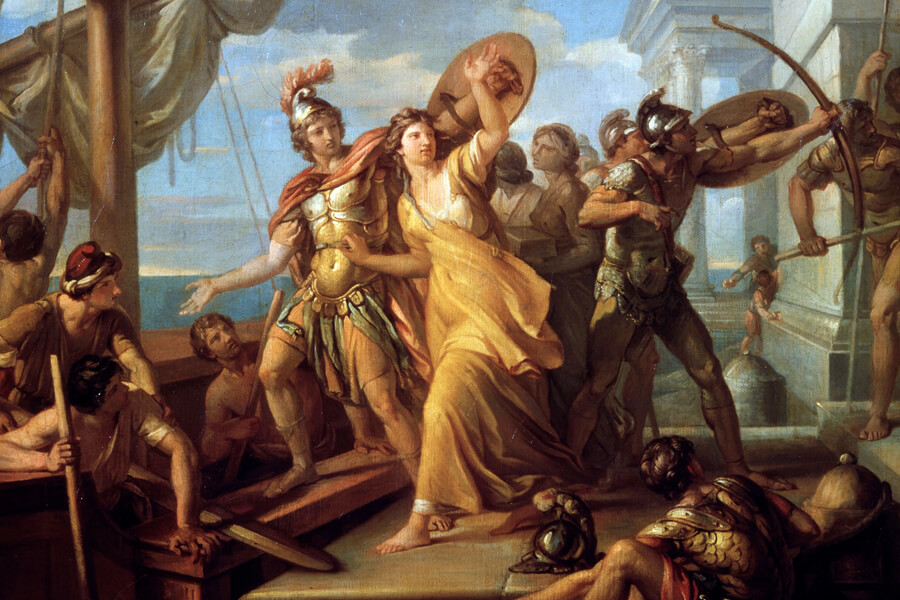
Sparta, like most other Greek cities, didn’t respect women very much. It still might be true to say they respected their women just a little bit more than everyone else. In fact, unlike other cities, Sparta trained its women to fight at the same time it trained its men.
Unfortunately, the physical training isn’t for what you might think. Women weren’t allowed to actually fight alongside their husbands. Their physical training was designed to help them with childbirth, an entirely different kind of “war.” We take back what we said about having more respect than other Greek cities.
Burial Headstones Weren’t Given To Everyone
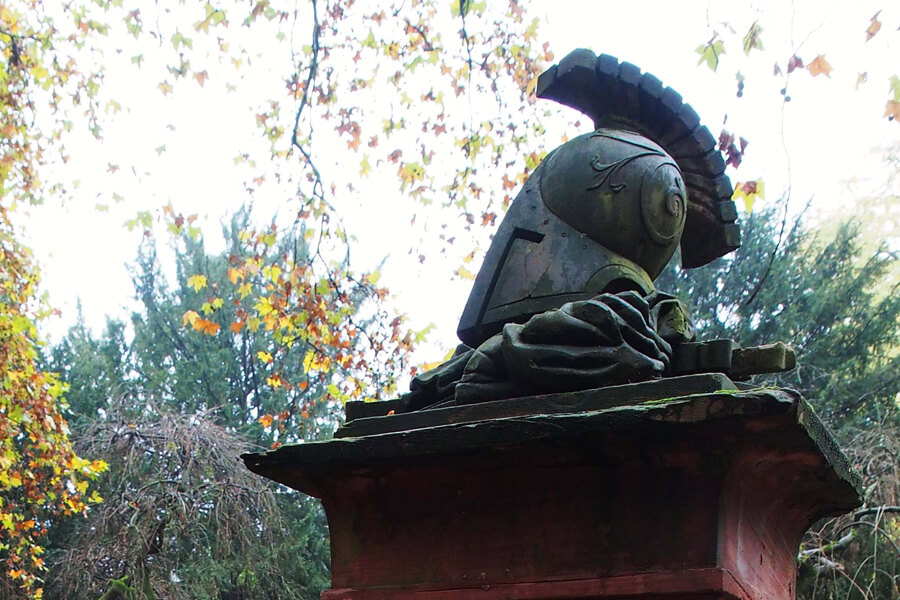
Not everyone in Sparta was given a headstone after they died. There were only two ways be honored with one. You either had to be a soldier who died in battle, or a woman who died during childbirth. No other form of death was considered honorable enough.
We do find it odd that a soldier could survive several battles, live to an old age, die of natural causes, and not be honored by the culture he fought bravely for. He never proved himself to be a coward, just an adept soldier with incredible skills to stay alive!
Drinking Was Not Encouraged

One of the great myths of ancient cultures is how much alcohol they could consume without imploding as a society. Spartans enjoyed wine, but history shows they didn’t over indulge. It was common to drink wine with and after dinner, but the wine was usually watered down.
To help discourage young Spartans from drinking, families would have their helots get aggressively drunk to show how detrimental the love of alcohol was. Along with this, children were constantly told to stay sober, afterall, wine would just go straight to their hips!
Marriages Were Consummated Before The Bride And Groom Saw Each Other

If you’ve ever wondered how Spartan marriages worked, we have the answers! There was no big party or proposal. Instead, the woman would shave her head, dress in men’s clothing and lay down in the middle of the night on a pallet. The male would then come, steal her away, do “the deed” and quietly return her to her parents house.
That’s it; the two were officially married after that, never having so much as looked each other in the eyes. The men would then go off to war, unable to return to their wives until they turned 30!
Not Everyone Was Punished With Death

As much as Spartans loved to end the lives of their enemies and unfit children, they didn’t always feel the same way about adults. When a male soldier was declared a coward, he wouldn’t always face death, sometimes he would face severe embarrassment.
Tactics used to embarrass cowards included forcing them to shave half of their face and wear clocks with patches of dyed cloth. In modern society, we would just call them hipsters. In Spartan society, there was no worse physical look then being forced to be unkempt. At least they could re-prove their worth during battle.
The Word “Laconic” Can Be Traced Back To Ancient Sparta
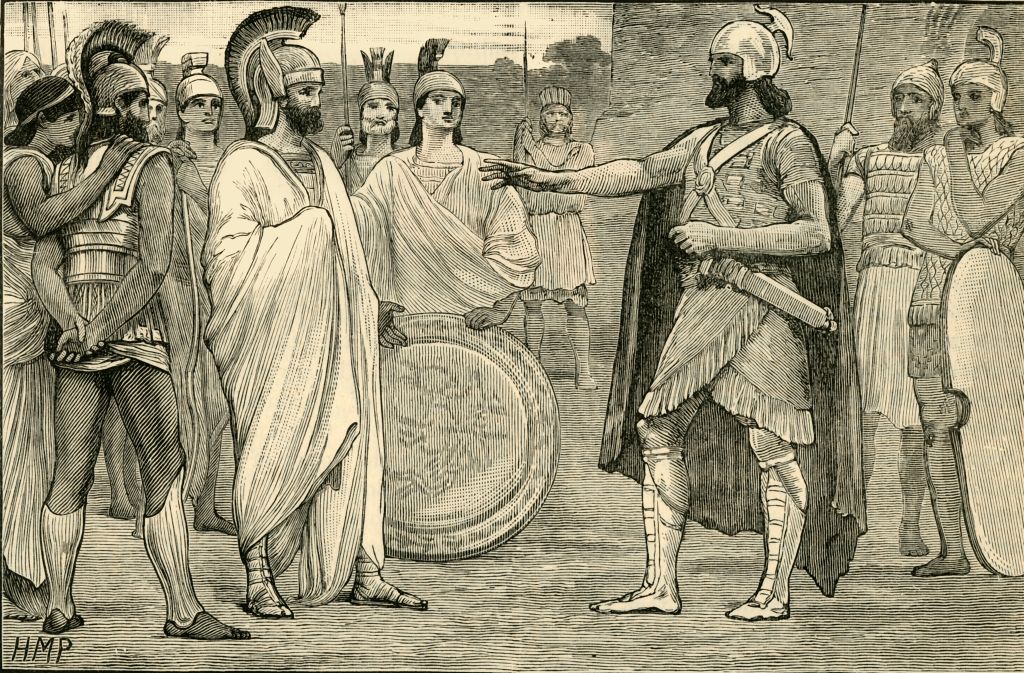
The word “laconic” essentially means to be brief and use few words. The term can be traced back to ancient Sparta, whose people were known for being blunt and hailing from Sparta, Laconia.
While many people believe this was due to a lack of education in arts and literature, Socrates denounced this theory, claiming the Spartans were very well educated. However, this misconception of the Spartans’ intelligence usually aided them, with their enemies assuming they were dim-witted.
They Maintained A Simple Diet
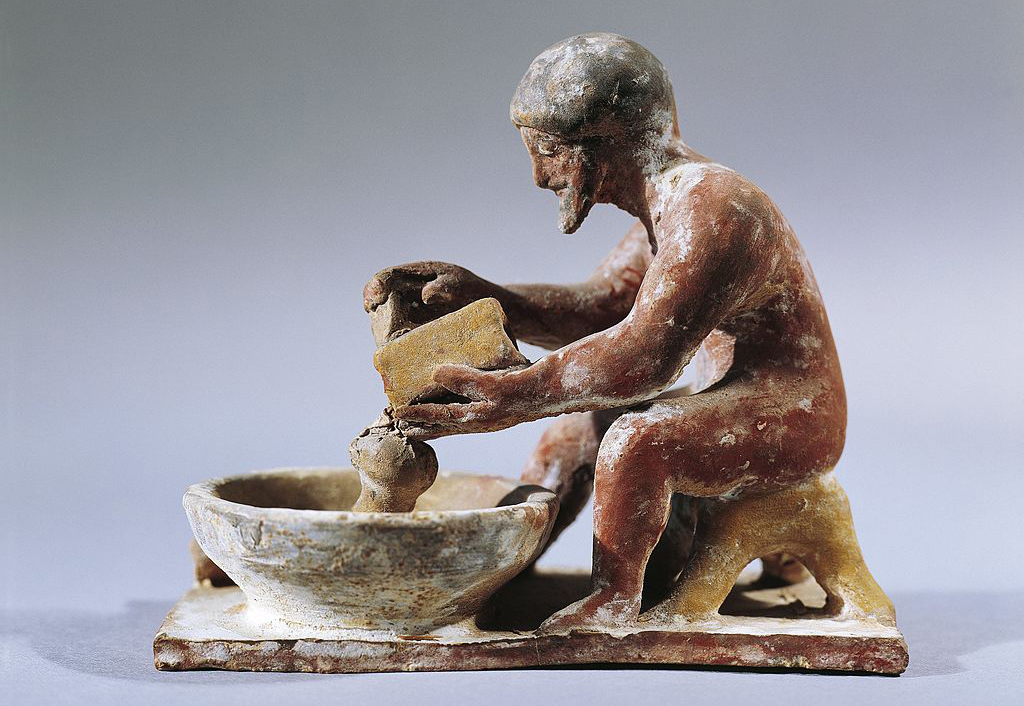
The ancient Spartans’ diet was limited to the local resources that they had on hand. Unlike many other Greek city-states, they weren’t as obsessed with their food and maintained a rather strict and humble diet. Their mentality was health and fitness above all, so what they ate was in order to stay as in-shape as possible and not to overindulge.
Typically, the food most Spartans ate included meat from pigs, goats, fish, and sheep, as well as locally grown fruit, milk, bread, and honey. Their most famous dish, however, is black broth, rumored to be made from boiled pig, its blood, with salt and vinegar.
Shields Were Of Great Importance
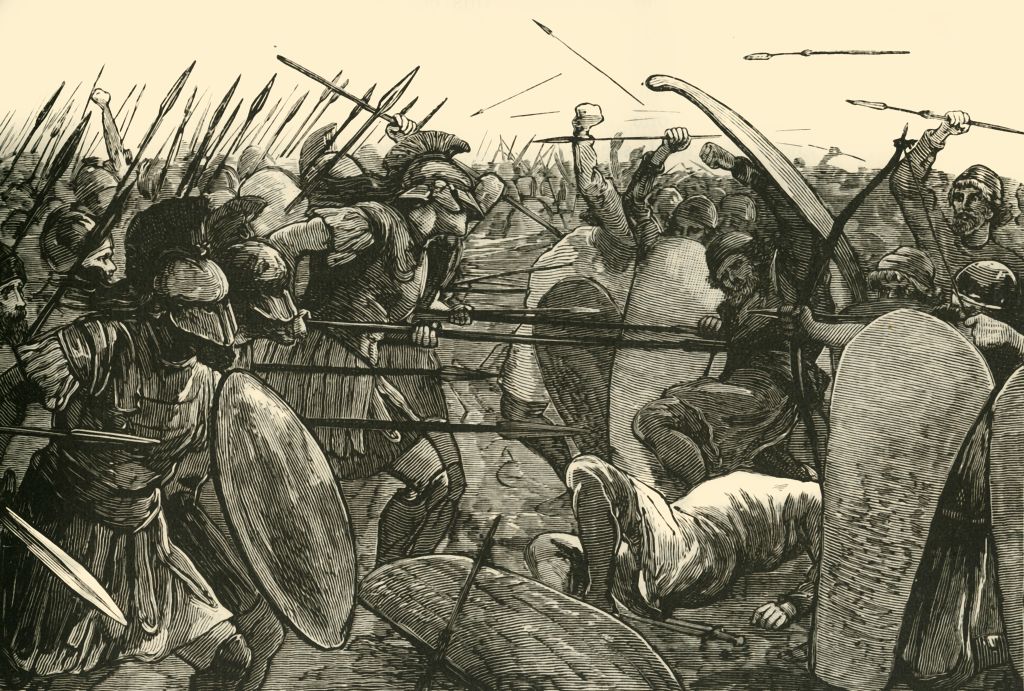
Besides being used to protect themselves as well as the soldier next to them in battle, a Spartan warrior’s shield held a deeper meaning. Military families would pass down their shields to each generation as a type of family heirloom.
Losing a sword or spear during battle was not too bad, however, losing your shield was viewed as a disgrace not only to your family but to Sparta. They were so highly valued because not only did they protect the warrior but were a symbol of Sparta.
Encouragement Through Stories
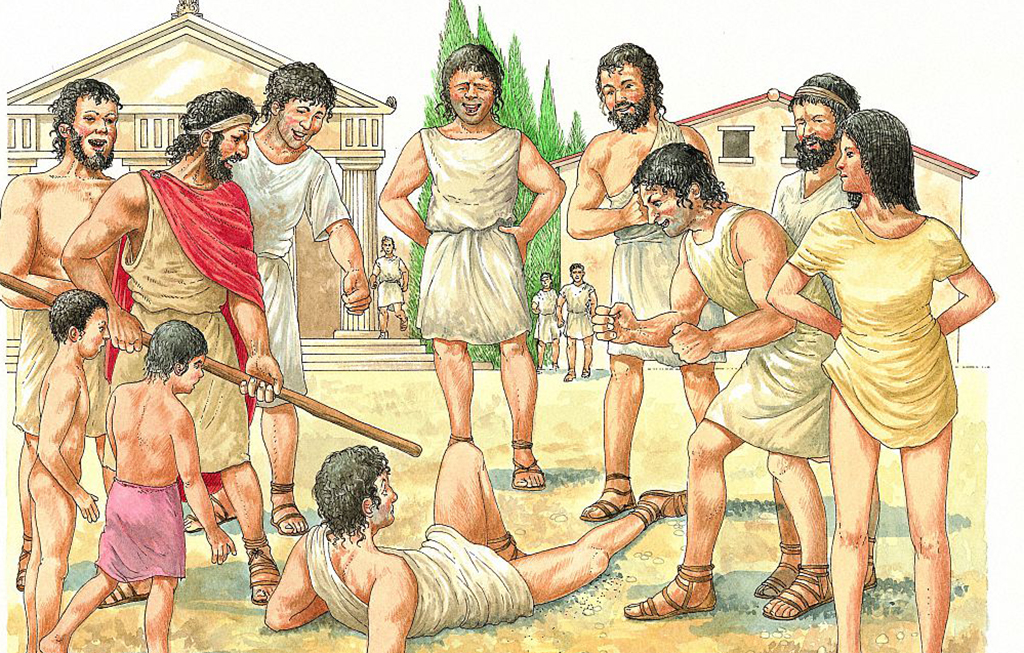
Aside from the rigorous training that required them to fight, steal, and suffer through extreme pain and punishment, another way to give the young boys courage was through stories. These tales were about their predecessors and the things they did that made them true Spartans.
Since the boys were forced to steal food but would be punished if caught, one story was about a boy who found a fox and hid it under his shirt. As he walked by Spartan soldiers, the fox chewed at his stomach, but he showed no pain to avoid getting caught.
The First Female Olympic Victor Was Spartan
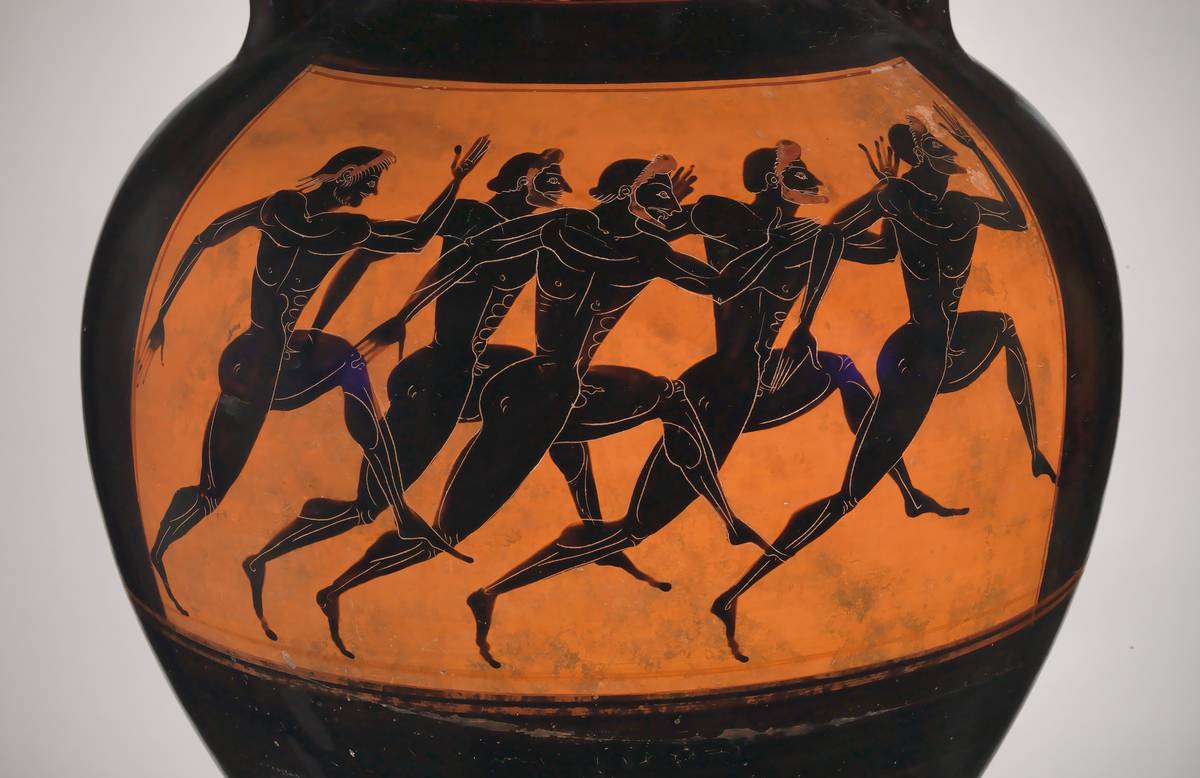
In 396 B.E. and again in 392 B.C., the Spartan Cynisca became the first female to ever win an Olympic event and was the champion of the four-horse chariot race. Although she did not race in the event herself, she trained and bred the horses, as well as funded the chariot and its rider.
However, this does not diminish her accomplishment, as women weren’t even allowed inside Olympia when the games were going on. So, for Cynisca to be involved at all, let alone win, was quite groundbreaking at the time.
For A Time, Sparta Didn’t Have Walls
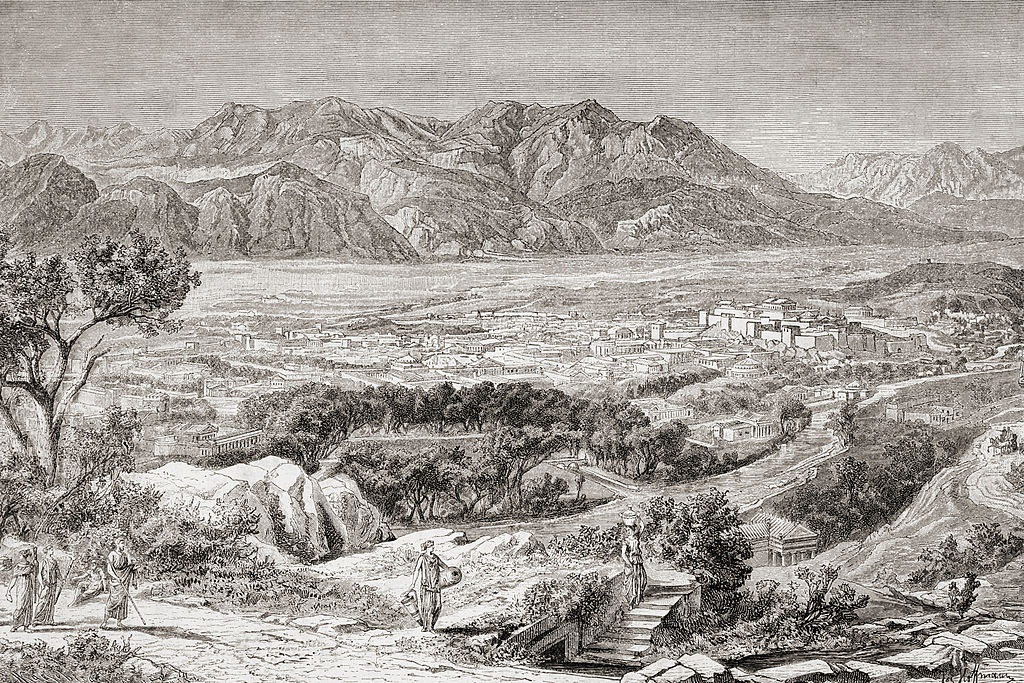
Unlike almost every other city-state in Greece, Sparta didn’t have walls protecting its territory. The city-state reached its height in 404 B.C. after it defeated Athens in the Second Peloponnesian War.
It was during that time that the city didn’t have walls defending its people or their property. Supposedly, Lycurgus claimed that “A city is well-fortified which has a wall of men instead of brick.” While this philosophy worked for a time, Sparta eventually fell to become a second-rate power in Greece.
It Eventually Became A Tourist Attraction
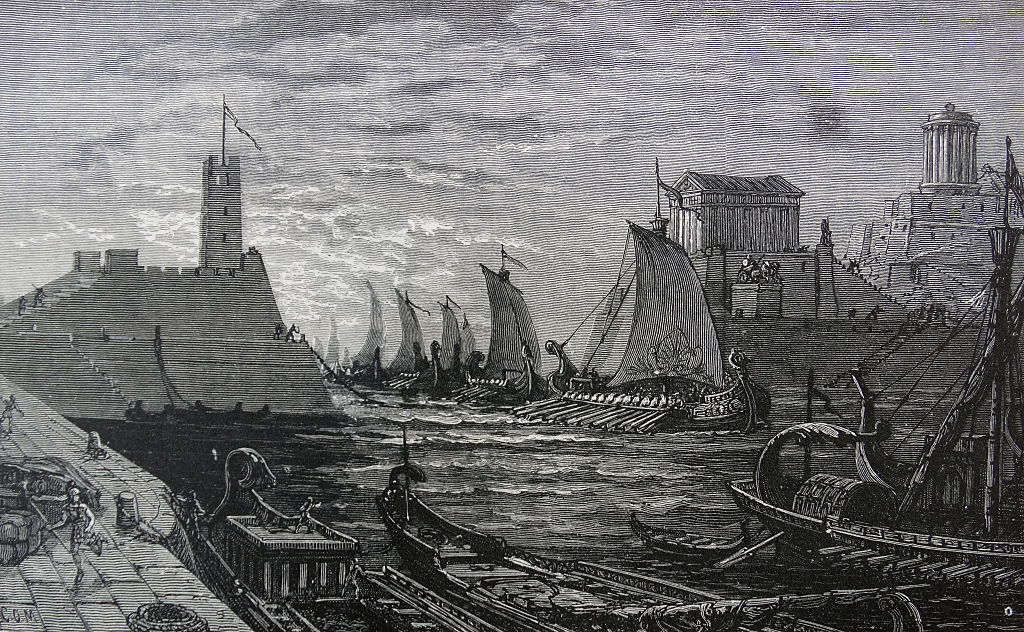
After its defeat in the Laconian war by Rome and other city-states, Sparta lost its political independence and was forced into the Achaean League. Although Sparta did not participate in the Achaean War, the Achaean League was defeated in 146 BC by the Roman general Lucius Mummius, making Sparta a free city under Roman rule.
During that time, some of the policies and practices instituted by Lycurgus were restored and Sparta became a popular tourist destination for the Roman elite to observe their unique customs.
The Loss That Sparta Never Recovered From
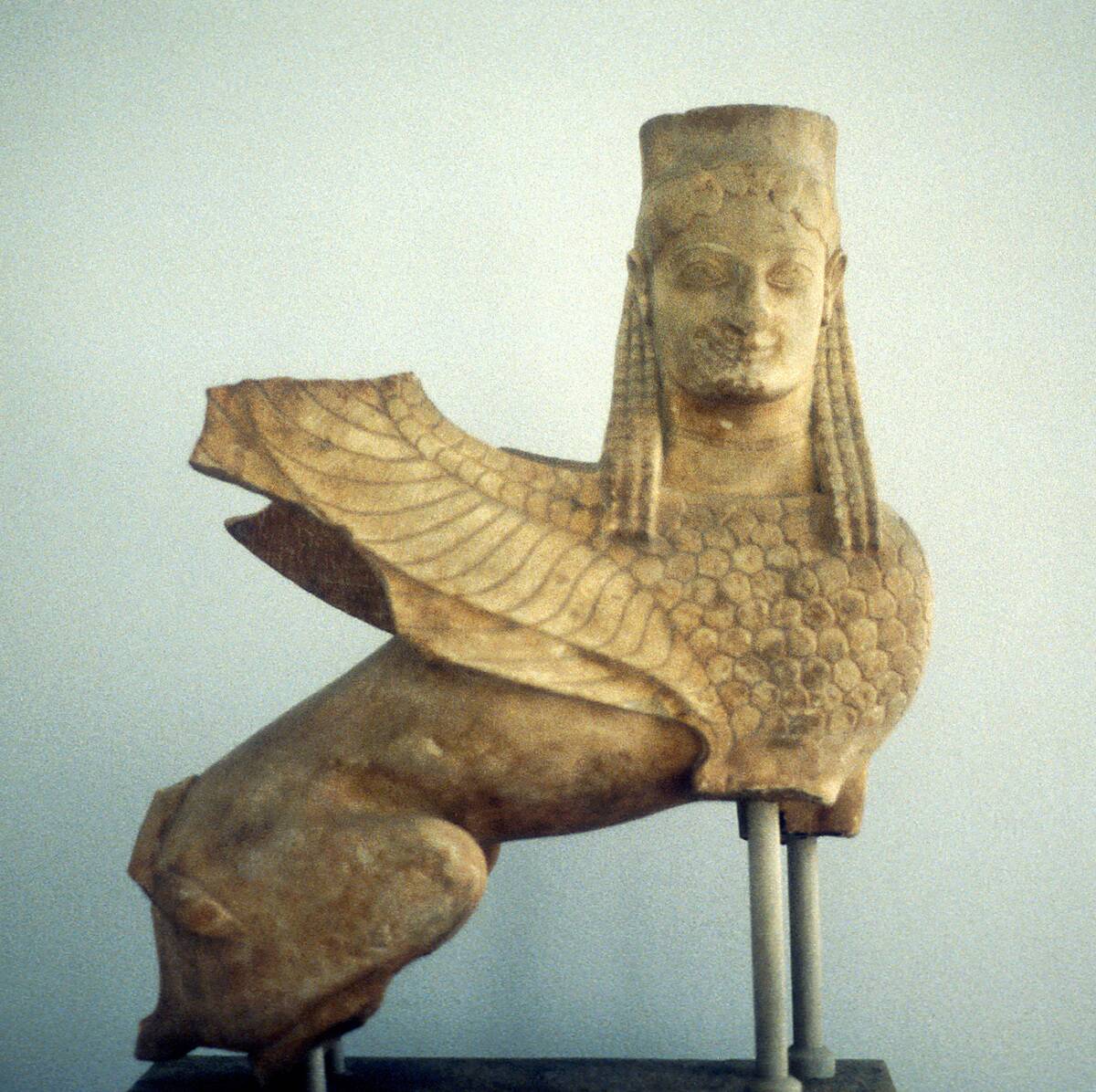
Although at its height, Sparta was the dominant force in the Greek military during the Greco-Persian Wars, it was rivaled by Athens — especially their naval power. The two powers collided between 431 and 404 B.C. in what is known as the Peloponnesian War. Sparta came out victorious.
However, Sparta was later defeated by Thebes in 371 B.C. in the Battle of Leuctra in a fair fight. This established that the Spartans indeed weren’t invincible and was the beginning of the city-state’s decline. They never recovered from this.
They Kept Their Hair Long
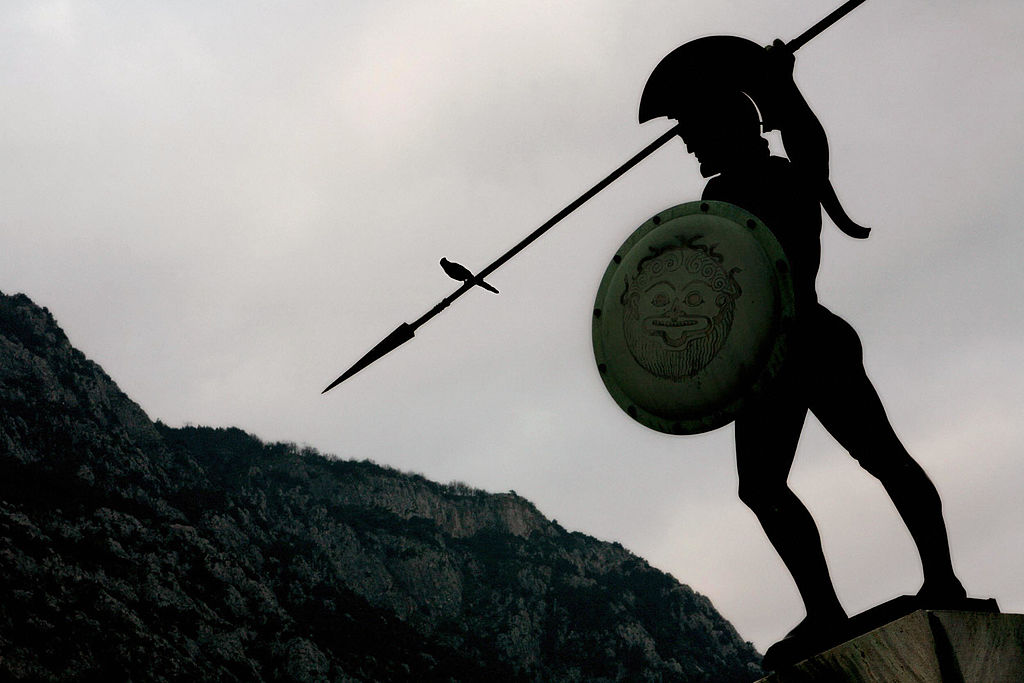
Although it was not uncommon for men to wear their hair long across Greece, Sparta upheld the tradition for centuries. Spartan boys kept their hair short until puberty when they then began to let it grow.
They prided themselves on their hair and would take special care of it before a battle, with both Spartan men and women wearing it in a knot on top of their heads. According to Lycurgus, “Long hair adds beauty to a good face, and terror to an ugly one.”
Sparta Was A Hub For Music And Poetry
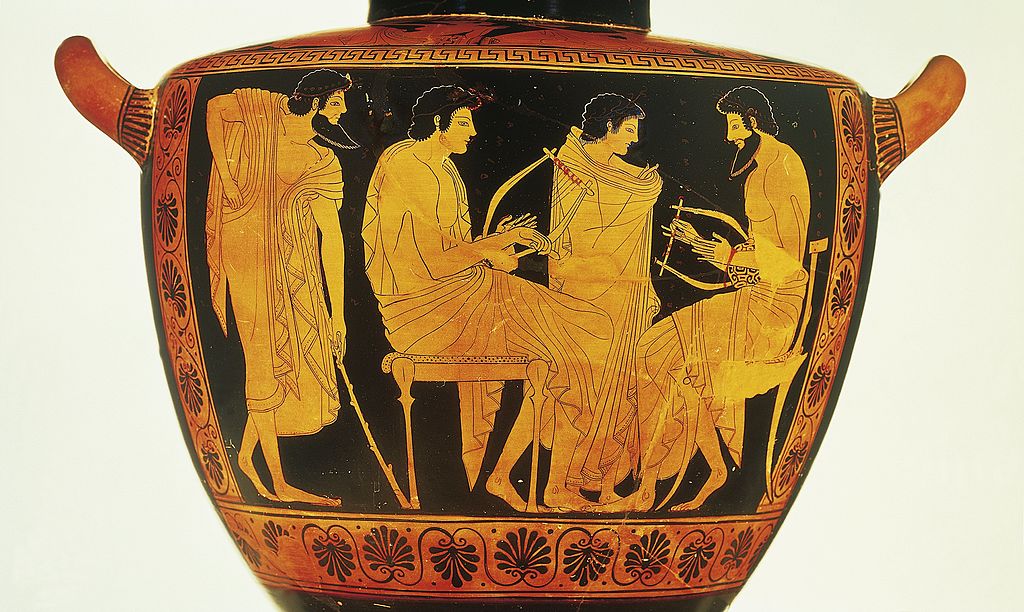
Although it may seem unlikely given their devotion to warfare and emphasis on strength, Sparta was a cultural hub for poetry and especially music. Trainees and soldiers were known to sing together during the evenings, priding themselves on their individual skill.
It is written that the famous musician, Terpander, is credited with establishing the first musical contest in Sparta. The Spartans were also incredibly defensive of the musical history, not allowing the Helots to perform any of their famous songs and forcing them to sing lower-class music.
Women Owned A Lot Of The Property
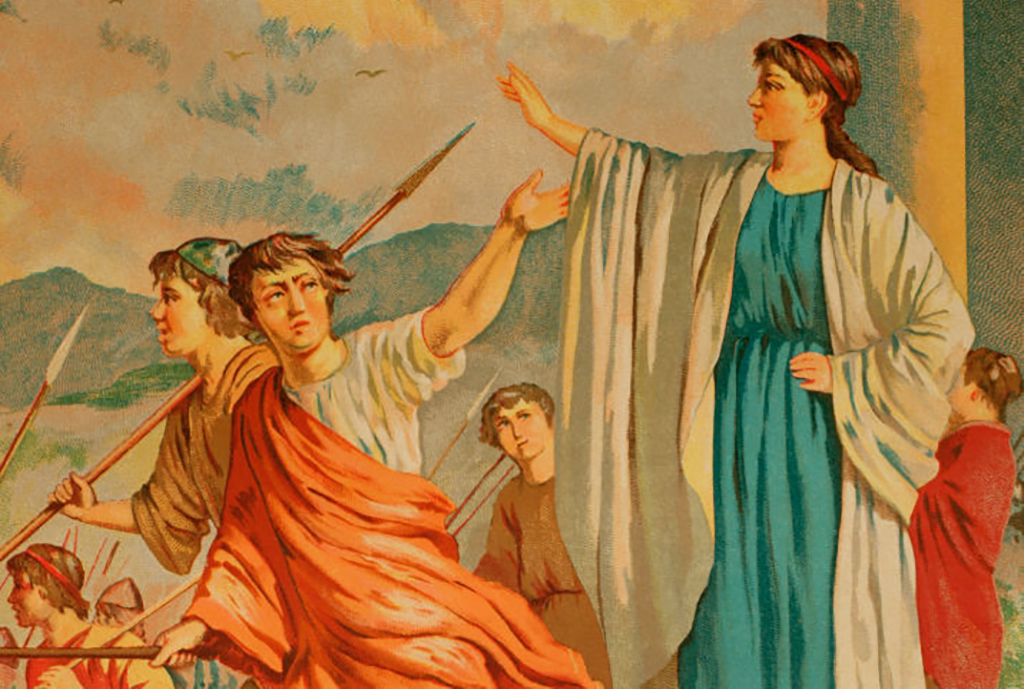
Very unusual for other Greek city-states at the time, the women of Sparta had economic power, controlling and owning even their husbands’ properties and lands. In later Classical Sparta, there was a serious decline in the male population, which meant that the women of the city-state owned at least 35% of all the land.
In addition to owning lands, women also weren’t forced into marriage at a young age like in Athens. They were actually forbidden to marry until they were well into their 20s.
A Historic Woman
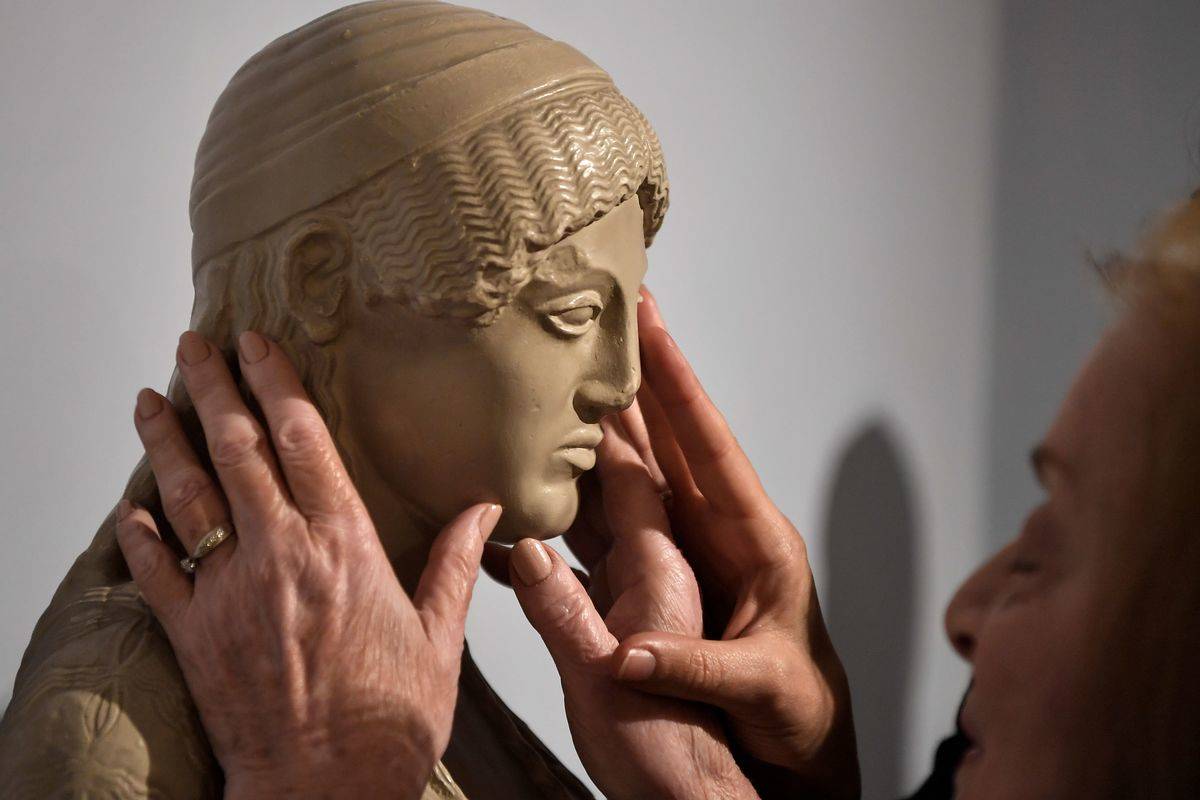
One of the most well-documented and highly regarded women in Spartan history is Queen Gorgo, the heiress to the throne and the wife of Leonidas I. It was recorded that as a young girl, she managed to convince her father, Cleomenes, to resist what would have been a very dangerous bribe.
In addition, when Spartan generals couldn’t decode a wooden tablet covered in wax, she instructed them to remove the wax. Beneath was a warning that Persian forces were planning to attack Greece.
Body Shaming Was In Full Effect
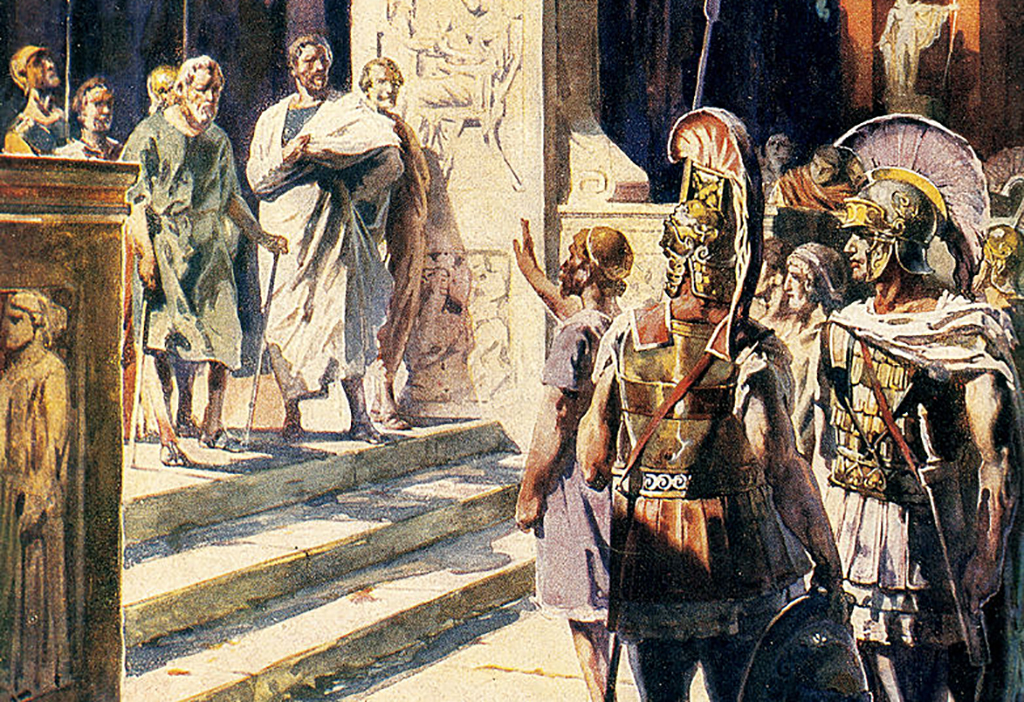
Since the Spartans were so dedicated to physical fitness and strength, those whose bodies weren’t in top shape were shamed and punished. They believed this was especially important for the young boys training to become Spartan warriors.
One of the ways they made sure that all of the boys met their standard was to hold an inspection every ten days. The boys would stand naked as their masters and the public would analyze their bodies checking for body fat or weak muscles.
They Were Superstitious
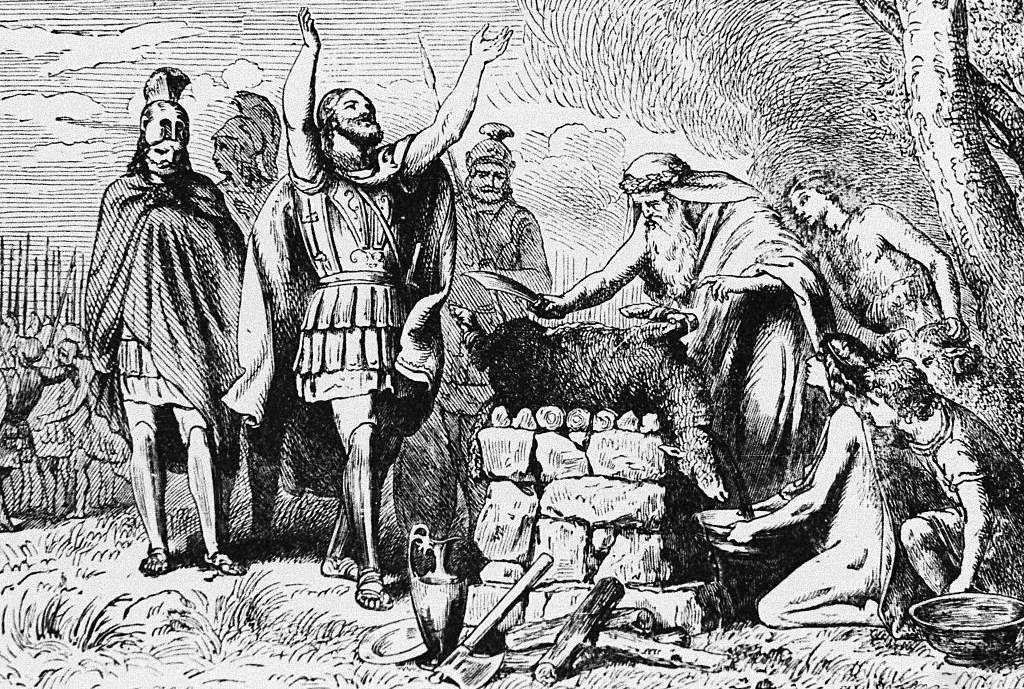
Although they knew that had a superior military to just about any other city-state in Greece, Spartans were still superstitious when it came to warfare. They made sure to follow a series of rituals and sacrifices before engaging in any military campaign.
Before heading out to war they would often sacrifice animals to the god of war, Enyalius, and bring the burning carcass to the edge of Spartan territory in preparation for the battle. On occasion, they would also consult oracles as Leonidas did before the Battle of Thermopylae.






